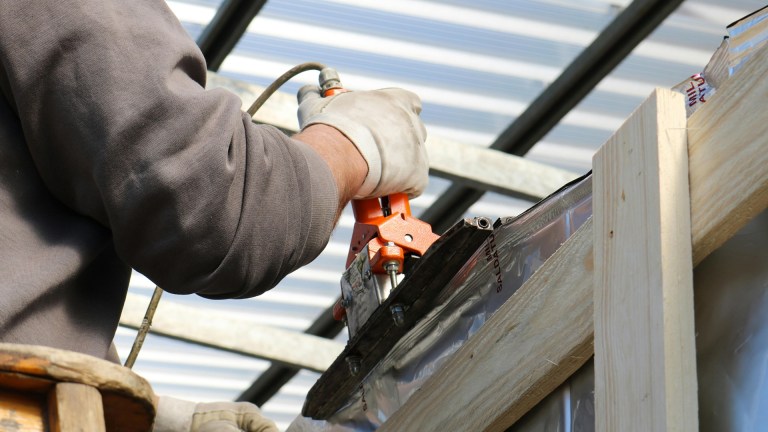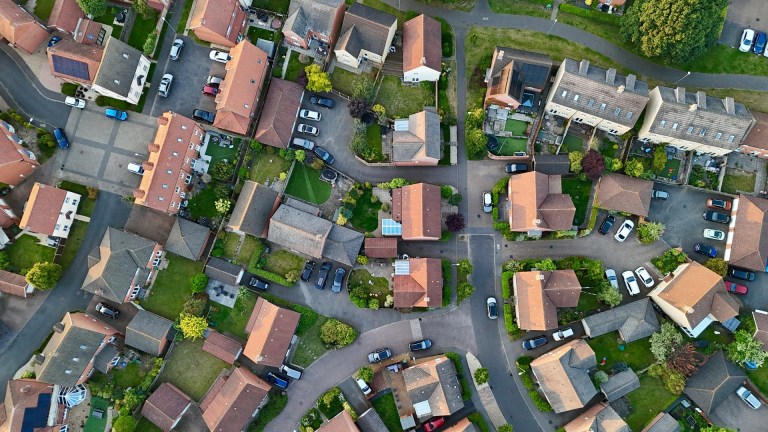As well as giving rough sleepers a place to live and the support to keep it, a greater focus on social housing and the welfare state has allowed Finns to make greater strides in tackling homelessness than the UK.
Homelessness in Finland has declined from around 16,000 people in 1986 when ARA started conducting national homelessness surveys to around 3,800 people in the present day.
But the reasons behind rising homelessness in the Scandinavian country will be familiar to Brits.
Rising rents and government cuts are behind the rise, according to Y-Säätiö analysis.
Budgets for housing advice have been halved while demand has increased by almost 80% in places like the capital Helsinki.
Homelessness declined in Espoo and Vantaa but rose in other cities, including Helsinki, Turku and Tampere where 117 more people were experiencing homelessness.
Advertising helps fund Big Issue’s mission to end poverty
Y-Säätiö’s Ojankoski said: “Compared to previous years, we are seeing many more tenants being forced to resign because of the level of rents and, correspondingly, more applications for lower-cost apartments at the request of Kela, the social insurance institution of Finland.
“The aim of the reforms was to steer people receiving subsidies towards more affordable housing, but the result is that a number of people are being pushed out and driven into homelessness. The demand for small and affordable housing has increased as a result of the conditions and decisions, and there is not enough suitable housing for everyone.”
Iso Numero is a street paper like the Big Issue creating working opportunities for people who cannot find income elsewhere.
Janne Hukka, the CEO and co-founder of Iso Numero, told the Big Issue that a combination of welfare cuts and efforts to drive down Finland’s national debt are driving homelessness.
The country’s debt currently stands just short of €175bn (£145bn), according to the Finnish Treasury,
“The current government has pursued an exceptionally aggressive policy of cutting welfare and unemployment benefits, housing support for low-income families, and exemptions for part-time work,” said Hukka. “Their aim has been to drive down budget deficits, and they have done so without the customary parliamentary evaluations—which usually involve taking into account the cumulative effects of policy changes. Added to this is the downturn in the national economy and the reduction of state-supported affordable housing.
Advertising helps fund Big Issue’s mission to end poverty
“It’s not a real surprise—a rise in homelessness is what happens when you cut housing benefits, tell low-income families to find cheaper housing, and offer no feasible supply of affordable rental properties. A huge shame, really, and totally preventable. Finland’s national debt is not out of control. Biting the bullet and accepting that investing in social housing and welfare benefits during a downturn – even if it requires increasing budget deficits – is, in my opinion, a reasonable alternative. Welfare reforms can wait for an economic upturn.
“Sadly, national debt is being used as a smokescreen, and the current government parties have a long-standing antipathy toward the Nordic welfare state as a whole. So, any adjustments to the current policy package seem unlikely.”
The Finnish government is expected to launch its plan to end long-term homelessness by 2027 this spring, backed with local development projects and more than €8m in funding.
Ojankoski said that Helsinki has “the best homelessness work in the world” and reducing homelessness nationally has been “one of the brightest successes of the Finnish welfare state”.
She called for a reverse of the cuts to housing advice budgets and a renewed commitment to the principles and models that made Finland the envy of the world for tackling homelessness.
“The now confirmed data on the rise in homelessness underlines the need for joint programming and local projects. The rise in homelessness also shows that a focus on ending long-term homelessness is not enough if prevention fails,” Ojankoski added.
Advertising helps fund Big Issue’s mission to end poverty
“We need to react now, before the problems become more deeply entrenched. This situation is not the result of a single bottleneck, we need a multi-faceted approach to homelessness prevention. At its best, homelessness work is about avoiding the experience of homelessness altogether.”
The figures will make interesting reading for the Labour government, which has committed £1bn in spending to tackling homelessness and rough sleeping in the last year and are expected to publish a long-awaited homelessness strategy this summer.
Scores of government ministers have made the trip to Finland in recent years to see the Finns’ successes for themselves.
Labour has vowed to shift towards preventing homelessness in its bid to reduce record-high numbers, undoubtedly inspired by Finland.
Do you have a story to tell or opinions to share about this? Get in touch and tell us more. Big Issue exists to give homeless and marginalised people the opportunity to earn an income. To support our work buy a copy of the magazine or get the app from the App Store or Google Play.










